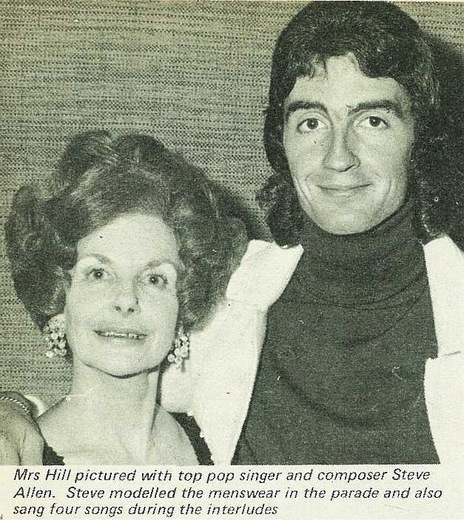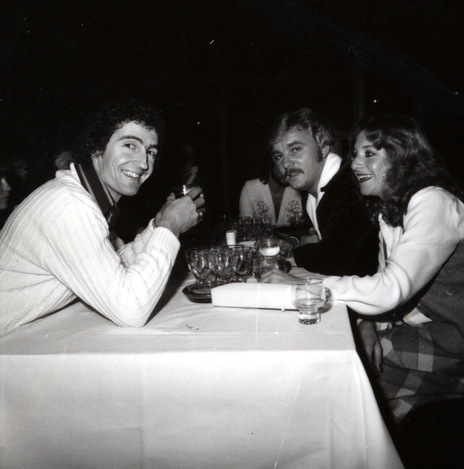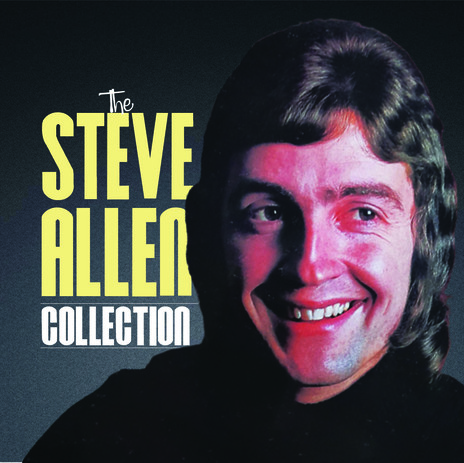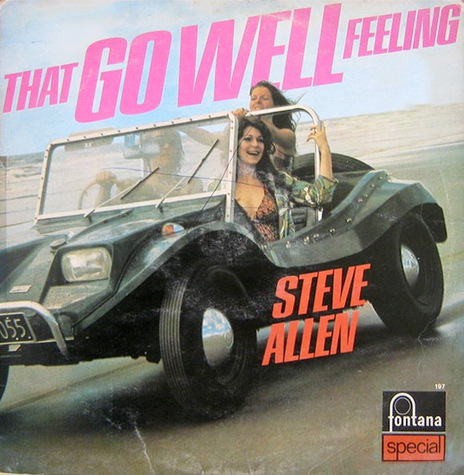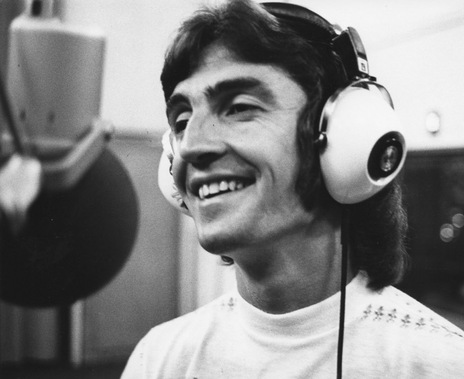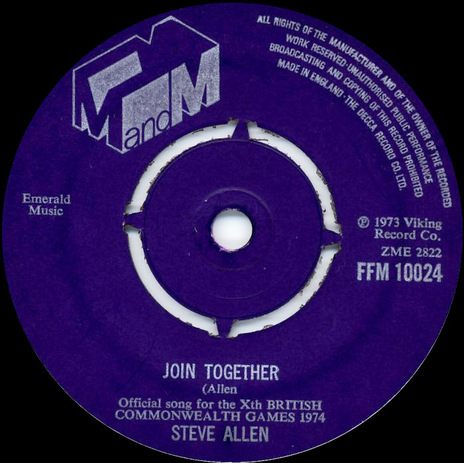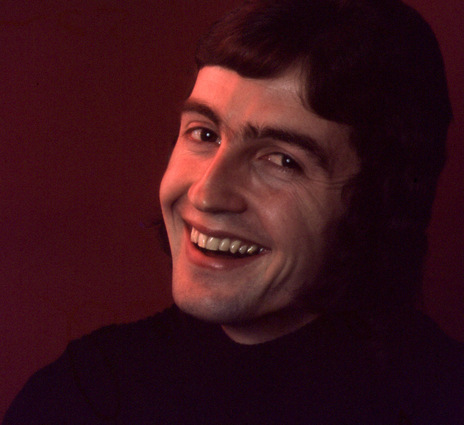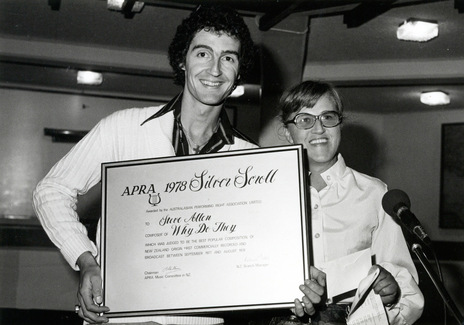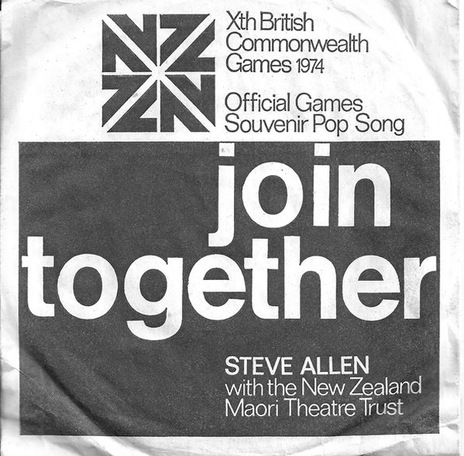Hilariously, a South African record company executive told a local reporter the ban on 'Join Together' would be reconsidered if the words could be changed “for our territory”.
Viking, Steve Allen’s record company, shot back: “This is the first time I’ve had anyone say, ‘we like the song but…’ By the time you take out the ‘buts’, you’ve got no song.”
Still in his early 20s, he’d released two albums and earned a No.1 hit for a cover of the Carpenters’ song 'Top Of The World'.
At the time he penned 'Join Together' in 1973, Allen’s (real name Alan Stephenson) career was in full flight. Still in his early 20s, he’d released two albums and earned a No.1 hit for a cover of the Carpenters’ song 'Top Of The World'. His ambition was to write and sing his own material.
Interviewed in 1994, Allen remembered bashing out the tune on a piano in about half an hour. “As with all good songs, it fell into place. The words were predetermined; it was just a case of finding a simple tune to string them together.”
He recorded it at the EMI studios in central Wellington in the winter of 1973. One guitarist, bassist and drummer created its backing track, with Allen on keyboards. The big production feel with the fat drum sounds came later when the vocals of the seven-strong New Zealand Māori Theatre Trust were overdubbed.
After winning the TV Studio One competition for a “Games Song” in September 1973, 'Join Together' was thrashed to death on radio, just missing out on topping the NZBC Pop-o-Meter Top 20 (up against Helen Reddy’s 'Delta Dawn').
Allen’s song caught the mood of its time, emerging as the recently-elected Labour government of “Big Norm” Kirk embraced a foreign policy based on moral principles and greater independence from traditional allies.
Labour was ready to go it alone. In mid 1973, Kirk controversially dispatched the frigate Otago to Mururoa Atoll, a cabinet minister on board. The aim: to protest against atmospheric French nuclear testing.
The government risked even greater wrath at home that year by halting a South African Springbok rugby tour in the face of threats by African nations to boycott the Games. The gamble paid off and the games went ahead.
And so on 24 January 1974, Allen and a massed choir sang 'Join Together' and 'What The World Needs Now Is Love' to a rapturous reception. Thousands of local children, wearing plastic capes of red, white and blue, made a living games symbol in the middle of the Queen Elizabeth II stadium.
Allen later recalled “being stuck in the middle of an awful lot of people, a long march and being pretty chuffed to be singing my own material”.
This dazzling rainbow display was for the benefit of a TV audience watching pioneering colour broadcasts. Launched just 10 weeks before the Games opened, Colour TV was already the status symbol of the 70s.
New (and long overdue) colour technology put a spell on a nation experiencing a national TV network for the first time. A mere 65 hours of TV were screened weekly in 1974, with advertising banned on four nights of the week, including Fridays. The Games pushed those hours right out, becoming the NZBC’s Great Leap Forward: the biggest undertaking in its history.
A well-oiled publicity machine minted the term “The Friendly Games”. Christchurch police chief Gideon Tait said he wanted foreign competitors and visitors to get the impression they were visiting “an angelic city” free of crime and violence.
The song became a bit of a cliché, even an albatross for Allen.
It appears the games got a little too “friendly” at times. Late-night sexual antics in the games village outraged walk-shorted New Zealand officials, appearing to confirm that Allen’s lyric “the games are for the fostering of peace and love” was being taken too literally.
The song became a bit of a cliché, even an albatross for Allen. In 1978, as he won the APRA Silver Scroll award for the song 'Why Do They?', he complained to a journalist: “I sometimes wish everybody would just forget all about 'Join Together'. It’s been far too emphasised – people think it’s all I’ve ever done.”. Signed to Glyn Tucker's Mandrill label and released as a single, 'Why Do They?' was also a finalist in the Yamaha International Song Festival.
A final single, also on Mandrill, was a duet with Kim Hart in 1980, 'Out Of Control'. An album of children's songs was released on Ode in 1982.
By the mid 1990s, Allen had left the industry and was running a bookshop in Napier. He continued to be frustrated that none of his other songs received acknowledgment: “It’s nice to be remembered for writing 'Join Together' but I’d like to be remembered for other things as well.”
